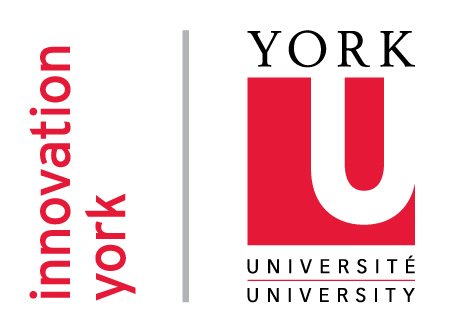Equity Crowdfunding is Arriving in Ontario!

By Rebecca Kacaba and Graham Topa
It has been almost a year since the Ontario Securities Commission (the "OSC") published a request for comment on an equity crowdfunding prospectus exemption (the "Crowdfunding Exemption"). This was the result of an OSC Staff Consultation paper released at the end of 2012. The Crowdfunding Exemption is expected to come into force in Ontario and other participating jurisdictions on January 25, 2016.1
The Crowdfunding Exemption provides startups and small and medium-size enterprises with an innovative new way of raising capital.2 The Crowdfunding Exemption is part of a broader effort by regulators to increase the avenues available to companies seeking to raise capital. Capital raising is a primary form of business financing in Canada with $121 billion raised through prospectus-exempt distributions in Ontario during 2014.3
1. The Rules
The Crowdfunding Exemption will permit companies who meet certain Canadian domiciliation requirements to raise capital pursuant to a disclosure document called a "crowdfunding offering document" published through a registered funding portal. An offering under the Crowdfunding Exemption can be open for 90 days and an issuer can raise up to $1.5 million per year under such exemption. Non-accredited investors are limited to a maximum investment in a single issuer of $2,500 per year and a maximum aggregate investment of $10,000 per year (collectively, the "Investor Limits").4 An accredited investor is limited to a maximum of $25,000 per investment and a maximum aggregate investment of $50,000 per year (the "Maximum Accredited Investor Amount").5 Other parameters for use of the Crowdfunding Exemption include the types of securities that can be issued, the type of marketing materials that can be used and the rights of withdrawal and rescission that must be provided to investors. Securities issued are subject to a four-month hold period.
A key element of the proposed regulatory framework is regulation of the portals through which investments are made. Crowdfunding portals will be required to comply with general registrant requirements for market dealers and will have various gatekeeper obligations with respect to the issuers using their site, including review of the issuer's disclosure document and conducting background checks on the principals of the issuer.
Crowdfunding offering documents will be required to disclose, among other things:
"¢ financial information and concurrent offerings;
"¢ a minimum and maximum offering size (if applicable);
"¢ an overview of the issuer's business;
"¢ the business objectives the issuer expects to accomplish using the proceeds raised; and
"¢ the principal risks facing the issuer's business.
2. Ongoing Disclosure Obligations
Use of the Crowdfunding Exemption will, in certain circumstances, impose ongoing disclosure requirements on non-reporting issuers, requiring annual financial statements and annual disclosure on the use of proceeds. Financial statements will need to be reviewed by an independent public accounting firm if the issuer has raised between $250,000 and $750,000 and audited if the issuer has raised over $750,000 under the Crowdfunding Exemption or another prospectus exemption. Non-reporting issuers will also be required to circulate a prescribed notice within 10 days of certain events, including changes in the nature of the issuer's business, industry or a change of control.6 These requirements are intended to provide a measure of assurance to investors with respect to the issuer's financial health, and presumably are considered necessary disclosure given that the issuer is getting access to a new pool of non-accredited investor capital. For some non-reporting small and high-growth companies, this increased compliance cost may be unforeseen and could prove detrimental if not accounted for in financial projections.
3. Potential Pitfalls
The adoption and use of the Crowdfunding Exemption will be interesting to observe during 2016. Investor Limits could make it difficult for small and high-growth companies to raise a worthwhile amount of capital.7 For example, it would require 600 non-accredited investors investing the maximum of $2,500 to raise the maximum offering amount under the Crowdfunding Exemption of $1.5 million.
Critics of equity crowdfunding have noted that statutory limitations on offering size may lead to overvaluation of the most highly-publicized small and high-growth companies, with angel investors, venture capitalists and crowdfunding participants engaging in bidding wars to protect their positions and returns.8
Small and high-growth companies contemplating use of the Crowdfunding Exemption should be mindful of the challenges that come with having a widespread shareholder base, particularly when shareholder approvals or consents are required. Consider a non-reporting issuer that has successfully completed an offering under the Crowdfunding Exemption and, assuming the investment was not made via a fund, the issuer now has a few hundred shareholders. If such an issuer is later receiving an investment from angel investors or venture capitalists, an amendment to its articles or the creation of a new class of shares could be required. Without legal documentation that properly anticipated such a scenario, obtaining shareholder approval may prove challenging, or at minimum more expensive, than the current norm, as a full shareholders' meeting could be required.
4. International Adoption of Crowdfunding
Despite the foregoing concerns, early evidence from abroad suggests that equity crowdfunding has had a positive impact on the growth of early-stage companies. A report by the Capital Crowdfund Advisors (the "CCA") found that companies engaging in equity crowdfunding raised an average of $178,790 during each campaign, selling an average of 15% of their companies.9 The CCA also found that equity-based crowdfunding produced an average increase of 341% in post-crowdfunding quarterly sales and returns of $813 for every hour invested in a crowdfunding campaign.10 Equity crowdfunding companies are arguably not prejudiced from obtaining further funding; within three months of a successful crowdfunding campaign, 28% of companies had obtained further financing from angel investors or venture capitalists and 43% of companies had attracted the attention of institutional investors.11 While the CCA's survey was voluntary and may not contain a representative sample of companies, the results are promising.12 These statistics seem to refute the longstanding crowdfunding criticism that it results in a messy capitalization table no venture capital investor will touch.
The United States is expected to bring into force crowdfunding rules for non-accredited investors during 2016, originally introduced as part of the Jumpstart our Business Startups Act signed by President Barack Obama in 2012. The proposed U.S. crowdfunding rules are subject to many of the issues and challenges facing the Crowdfunding Exemption. Specifically, the cost for an issuer of a crowdfunding offering and the post offering compliance costs is a re-occurring concern in U.S. commentary. The current draft of the U.S. rule mandates registered portals, formal disclosure documents and limits on the amount of capital raised in a manner largely consistent with the Crowdfunding Exemption. Additional provisions requiring issuers that meet certain thresholds to begin meeting full public company reporting requirements have been hotly debated.13
Despite areas to be cautious of, the past experience of equity crowdfunders suggests that the equity crowdfunding model does enhance growth prospects for startups. It is an innovative response to the new pre-purchase/crowdsourcing mechanisms permeating the startup world and we applaud securities regulators for moving forward with this exemption in a thoughtful and timely fashion. Allowing early-stage companies greater access to equity capital through increased exposure to retail investors and permitting more individuals access to equity in early-stage startups is ultimately beneficial for all Canadians.
The Aird & Berlis LLP Startup Team has a wealth of experience assisting startups with a range of activities including funding, incorporation, shareholders agreements, protecting intellectual property and software agreements. For more information, please contact any member of our Startup Team.
 1 Other jurisdictions adopting the Crowdfunding Exemption are Quebec, Manitoba, New Brunswick and Nova Scotia. British Columbia, Saskatchewan, Manitoba, Québec, New Brunswick and Nova Scotia previously adopted a different crowdfunding exemption in May 2015.
2 Investment funds, real estate issuers, and capital pool companies will not be qualified to use the Crowdfunding Exemption.
3Â OSC Backgrounder, November 5, 2015 "Exempt Market Review": https://www.osc.gov.on.ca/documents/en/Securities-Category4/nr_20151105_osc-proposes-four-capital-raising-backgrounder.pdf
4 The $10,000 annual limit is applicable in Ontario only.
5 The $50,000 annual limit does not apply for certain accredited investors e.g. individuals with net financial assets exceeding $5 million.
6 Non-reporting issuers with less than 51 securityholders are not required to distribute financial statements or provide the prescribed notice on certain events. They are required to disclose the use of proceeds annually.
7 MaRS Discovery District submission to OSC dated June 18, 2014 and available online at http://www.marsdd.com/wp-content/uploads/2014/06/MaRS_OSC_crowdfunding_2014.pdf.
8 Michael Blanding, "The Problems and Promises of Crowdfunding," Forbes, July 1, 2013. http://www.forbes.com/sites/hbsworkingknowledge/2013/07/01/the-problems-and-promises-of-crowdfunding/
9 CCA, "How Does Crowdfunding Impact Job Creation, Company Revenue and Professional Interest," January 15, 2014. http://crowdfundcapitaladvisors.com/crowdfunding-impact/. See also: Cheryl Conner, "New Report: The ROI of Crowdfunding," Forbes, January 21, 2014. http://www.forbes.com/sites/cherylsnappconner/2014/01/21/new-report-the-roi-of-crowdfunding/.
10 Ibid.
11 Ibid.
12 The Report was prepared after the CCA had interviewed several hundred successful crowdfunders in Europe and Africa.



